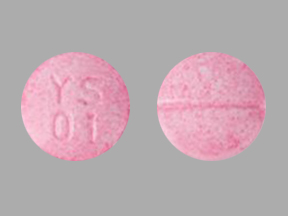
Clonidine Coupons & Savings Card – Discount Prices from $10.46
Generic for: Catapres-tts-3, Catapres-tts-1, Catapres-tts-2
My prescription
Edit
0.1MG, Clonidine (60 Tablets)
Select pharmacy

CVS
$19.56
COUPON PRICE
Walgreens
$10.46
COUPON PRICE
Albertsons
$13.21
COUPON PRICE
Walmart
$17.49
COUPON PRICEClonidine savings card
Show this card to your pharmacist
Walgreens
$10.46
BIN
ID
PCN
GRP
019876
LH6C9F5FEA
CHIPPO
LHX
Powered by
More prescriptions for hypertension
More prescriptions for hypertension
Price history for Catapres-tts-1 (brand) & Clonidine (generic)
60 Tablets, 0.1MG/24HR
Average retail price for Catapres-tts-1
Average retail price for Clonidine
Average SaveHealth price for Clonidine
Our price history data is based on aggregated prescription data collected from participating pharmacies in America. Our prescription data updates daily to reflect the latest price changes. If you notice a missing data point, it means there wasn't sufficient data available to generate a monetary value for that date.
We analyzed Clonidine prices for (0.1MG/24HR, 4 Tablets) over the last 12 months. The average retail price was $123.10, while the average price using the SaveHealth discount card was $44.80. That's a savings of approximately 63.61% when using our Clonidine coupon.
Compared to the generic version, Catapres-tts-1 had an average price of $334.73 over the same time period. With the SaveHealth savings card, Clonidine is 86.62% cheaper on average than Catapres-tts-1.
*Retail prices are based on pharmacy claims data, and may not be accurate when we don't have enough claims.
Clonidine dosage forms
Dosage Quantity Price from Per unit 0.1MG 60 Tablets $10.46 $0.17 0.1MG 1 Tablet $9.02 $9.02 0.1MG 4 Tablets $9.10 $2.27 0.1MG 5 Tablets $9.12 $1.82 0.1MG 6 Tablets $9.15 $1.52 0.1MG 8 Tablets $9.20 $1.15 0.1MG 10 Tablets $9.24 $0.92 0.1MG 12 Tablets $9.29 $0.77 0.1MG 15 Tablets $9.37 $0.63 0.1MG 20 Tablets $9.49 $0.47
| Dosage | Quantity | Price from | Per unit |
|---|---|---|---|
| 0.1MG | 60 Tablets | $10.46 | $0.17 |
| 0.1MG | 1 Tablet | $9.02 | $9.02 |
| 0.1MG | 4 Tablets | $9.10 | $2.27 |
| 0.1MG | 5 Tablets | $9.12 | $1.82 |
| 0.1MG | 6 Tablets | $9.15 | $1.52 |
| 0.1MG | 8 Tablets | $9.20 | $1.15 |
| 0.1MG | 10 Tablets | $9.24 | $0.92 |
| 0.1MG | 12 Tablets | $9.29 | $0.77 |
| 0.1MG | 15 Tablets | $9.37 | $0.63 |
| 0.1MG | 20 Tablets | $9.49 | $0.47 |
| 0.1MG | 30 Tablets | $9.73 | $0.32 |
| 0.1MG | 33 Tablets | $9.81 | $0.30 |
| 0.1MG | 40 Tablets | $9.98 | $0.25 |
| 0.1MG | 50 Tablets | $10.22 | $0.20 |
| 0.1MG | 90 Tablets | $17.27 | $0.19 |
| 0.1MG | 100 Tablets | $17.53 | $0.17 |
| 0.1MG | 120 Tablets | $18.03 | $0.15 |
| 0.1MG | 180 Tablets | $19.55 | $0.11 |
| 0.1MG | 270 Tablets | $21.82 | $0.08 |
| 0.1MG | 300 Tablets | $22.58 | $0.07 |
| 0.1MG | 500 Tablets | $27.63 | $0.06 |
| 0.1MG | 800 Tablets | $35.21 | $0.04 |
| 0.1MG | 1000 Tablets | $40.26 | $0.04 |
| 0.2MG | 1 Tablet | $9.03 | $9.03 |
| 0.2MG | 14 Tablets | $9.48 | $0.68 |
| 0.2MG | 30 Tablets | $10.03 | $0.33 |
| 0.2MG | 50 Tablets | $10.72 | $0.21 |
| 0.2MG | 60 Tablets | $11.06 | $0.18 |
| 0.2MG | 90 Tablets | $18.13 | $0.20 |
| 0.2MG | 100 Tablets | $18.48 | $0.18 |
| 0.2MG | 180 Tablets | $21.27 | $0.12 |
| 0.2MG | 270 Tablets | $24.40 | $0.09 |
| 0.2MG | 300 Tablets | $25.45 | $0.09 |
| 0.2MG | 500 Tablets | $32.41 | $0.07 |
| 0.2MG | 800 Tablets | $42.86 | $0.05 |
| 0.2MG | 1000 Tablets | $49.82 | $0.05 |
| 0.3MG | 1 Tablet | $9.04 | $9.04 |
| 0.3MG | 6 Tablets | $9.24 | $1.54 |
| 0.3MG | 30 Tablets | $10.20 | $0.34 |
| 0.3MG | 50 Tablets | $11.01 | $0.22 |
| 0.3MG | 60 Tablets | $11.41 | $0.19 |
| 0.3MG | 90 Tablets | $18.60 | $0.21 |
| 0.3MG | 100 Tablets | $19.00 | $0.19 |
| 0.3MG | 500 Tablets | $35.01 | $0.07 |
| 0.3MG | 1000 Tablets | $55.01 | $0.06 |
| 0.3MG | 9000 Tablets | $287.30 | $0.03 |
